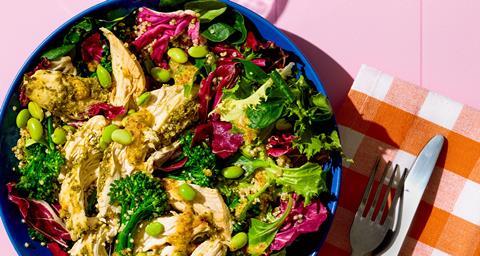The salad brand aims to encourage more dialogue on women’s health, as one in six admit that men often aren’t involved in the conversations

Florette has teamed up with best-selling author and menopause nutritionist Emma Bardwell to boost awareness of women’s health.
According to research from the leading salad brand, only half of UK households speak about women’s health, including periods and menopause, and even fewer are aware that nutrition can aid symptoms.
In the sample, which comprised of 2,000 UK adults, one in six admitted that it is spoken about in their household, but men don’t tend to be involved in the conversations.
The survey found that over a quarter (28 per cent) of people say they don’t know enough, as it hasn’t been well taught and so they wouldn’t feel confident helping someone going through it.
While including more healthy food such as salads into our diets can be beneficial, Florette revealed that nearly a quarter (24 per cent) do not incorporate fruit and vegetables in their daily diet.
Additionally, the salad brand found that many women are unsure of how to treat menopausal symptoms, including mindfulness (73 per cent), vitamins (64 per cent), and nutrition (59 per cent).
As part of the partnership, Baldwell created several recipes using Florette products and has been writing a blog which looks at the power of diet and lifestyle choices.
She provides valuable insight into ways to approach the topic of menopause and is now encouraging more people to have open conversations about women’s health. “My overarching advice when it comes to managing the menopause is to be prepared, not scared,” she said.
“With the right education, support and awareness, it can be an incredibly liberating and positive time of life and there are a wealth of strategies available to women to help them navigate their journey.
“In fact, much of what I do day to day is spent cutting through the sometimes-confusing dietary guidelines to bring women simple, evidence-based actionable strategies that slot easily into busy lives.”
Baldwell explained that while there’s no such thing as a specific menopause diet, a “Mediterranean-style way of eating can be a great starting point for women.”
She added: “That means lots of fresh, minimally processed produce where possible, including a range of fruit and vegetables, salads, some lean protein, whole grains, lentils and beans, nuts and seeds, and some dairy and healthy fats from things like oily fish, olive oil and avocados.”



